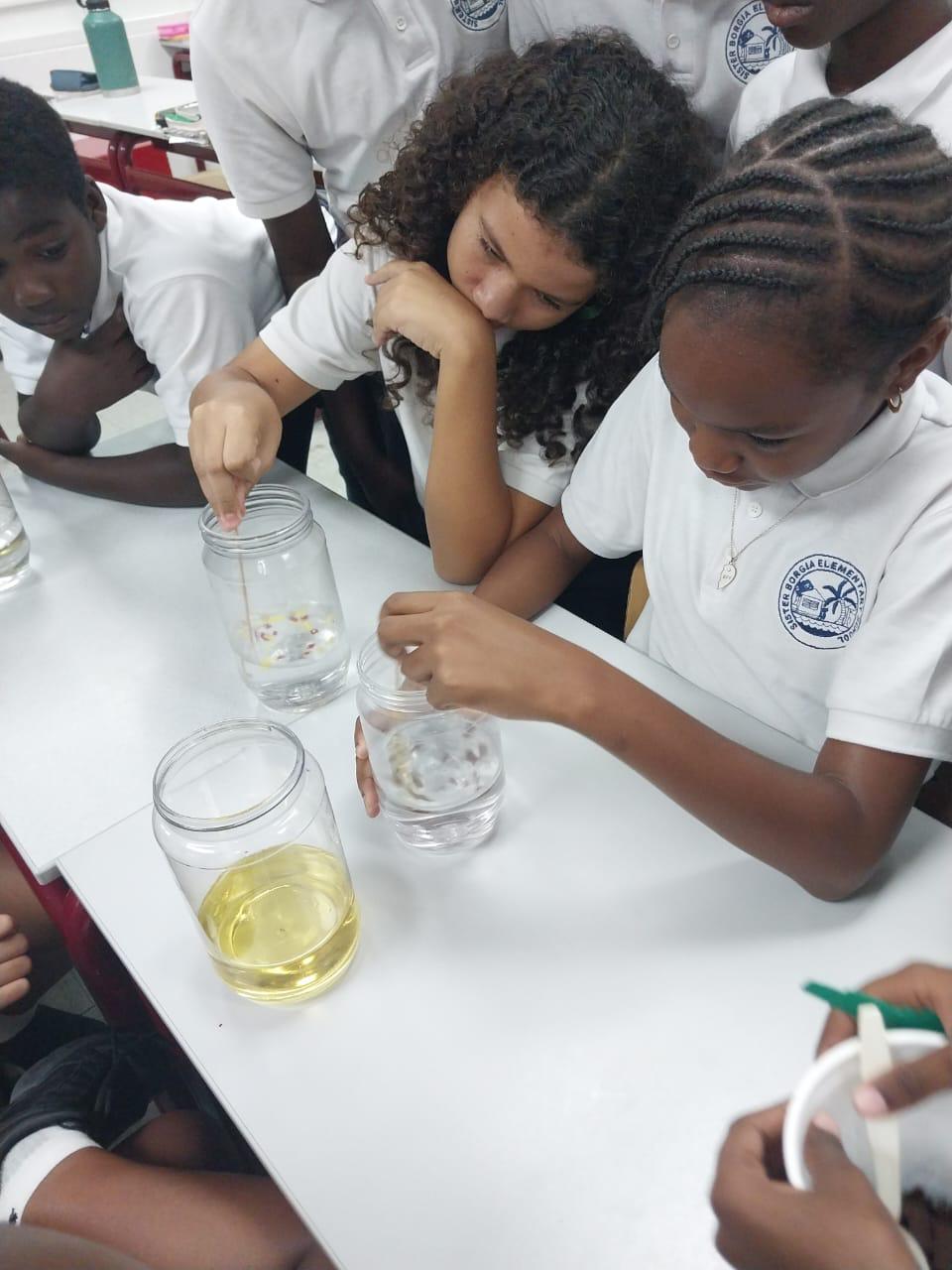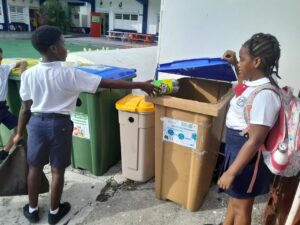August 26 By Ria Uiterloo
Part 1: Insights from School Leaders
Recently, I had the opportunity to interview six primary school managers to gain insights into their understanding of Generation Alpha and Gen Z. These interviews were conducted following in-depth discussions between the school managers and their educational staff on the topic. The series of articles that follow reflect the outcomes of these discussions and the approaches being implemented within the framework of Foundation-Based Education. (Please visit their website for more information on their educational concept and approaches.)
Describing the Generations: Gen Z and Generation Alpha
Generation Z (born 1997-2012): Generation Z, often referred to as “digital natives,” grew up in a world where technology was already well-integrated into daily life. This generation is characterized by its comfort with digital tools, social media, and online communication. Gen Z tends to value authenticity, social justice, and personal expression. In the educational sphere, they respond well to interactive, tech-driven learning environments that offer immediate feedback and personalized experiences. Despite their technological savviness, they still experienced a mix of traditional and digital learning, giving them a unique adaptability in both spheres.
Generation Alpha (born 2010 onwards): Generation Alpha, the children of Millennials, represents the first generation to be fully immersed in the digital age from birth. Often called “screenagers,” these children are growing up with smartphones, tablets, and instant access to information. Their engagement with the digital world is second nature, making them extremely adept at using technology for learning and social interaction. However, this also means they have different social and learning preferences compared to previous generations. Generation Alpha tends to prefer visual and interactive content over text-based information and often favors collaboration and hands-on activities. In the classroom, they thrive in environments that emphasize inquiry-based learning, creativity, and the use of technology as an educational tool.
Insights from Sr. Borgia School
According to Edmaira Jacobs, the school manager of Sr. Borgia School, the student body predominantly consists of Generation Alpha—children born after 2010. Although they currently do not have any Gen Z students, the schools observe an interesting interplay of generational influences among their staff, which includes Baby Boomers, Gen X, Millennials, and Generation Alpha. This generational mix underscores the contrast in technological engagement, a defining characteristic of these groups, which in turn influences various teaching approaches, especially in the use of technology.
Ms. Jacobs highlights that Generation Alpha, being deeply immersed in the digital world, differs significantly from previous generations. These children often shy away from traditional public speaking, preferring digital interactions. This shift requires a corresponding change in teaching methods to better engage this generation. The school has observed that Generation Alpha students are naturally inclined towards self-discovery and inquiry-based learning, which aligns well with the evolving educational landscape.
To cater to these preferences, teachers are transitioning from traditional roles to becoming guides and coaches, facilitating a more interactive and student-centered learning experience. Incorporating technology into their learning is essential for Generation Alpha. These students prefer visual and interactive content, often choosing to watch videos on topics rather than reading about them. They thrive in environments that encourage hands-on learning, collaboration, and critical thinking. Consequently, project-based learning and group activities have proven to be highly effective in meeting their educational needs.
Evidence-Based Learning and Assessment
Recognizing the unique needs of Generation Z and Generation Alpha, the schools are committed to evaluating student learning through a variety of innovative methods beyond traditional exams. These methods are tailored to align with the characteristics and learning preferences of these digital-native generations:
Group Projects: Understanding that Generation Z and Alpha thrive in collaborative environments, students work together on presentations and projects that are directly aligned with the curriculum. This approach not only fosters teamwork but also reflects the real-world, project-based work they are likely to encounter in their future careers.
Formative and Summative Assessments: Regular assessments are crucial for these generations, who are accustomed to receiving immediate feedback in their daily lives. These assessments help track their understanding and allow for real-time adjustments in instructional strategies, ensuring that learning is both relevant and effective.
Interactive Tools: Digital tools like Kahoot! resonate with Generation Z and Alpha’s affinity for technology and interactive learning. These platforms provide engaging and immediate ways to reinforce learning and measure comprehension, catering to their preference for dynamic and multimedia-rich experiences.
Student Achievement Records: Data-driven approaches are particularly effective for these generations, who are accustomed to personalized experiences in many aspects of their lives. By analyzing data from various sources, such as attendance records, engagement statistics, and teacher evaluations, instruction can be tailored to meet the individual needs of each student, ensuring personalized and effective support.
By utilizing multiple sources of evidence, teachers can strategically design lessons that cater to the unique learning styles and expectations of Generation Z and Generation Alpha, ensuring that every student receives the support they need to succeed in a rapidly evolving educational landscape.
I also question School managers on how they are fostering diversity and community-mindedness
One school manager, representing the Foundation Catholic foundation Education St. Maarten, emphasizes the importance of creating an inclusive and diverse environment. Their approach includes:
Culturally relevant curriculum: Incorporating materials that reflect diverse cultures and perspectives, helping students understand and appreciate different backgrounds.
Inclusive Teaching Methods: Employing diverse teaching styles to meet the needs of all students, ensuring that no one is excluded from the learning experience.
Community Engagement: Building strong relationships with families and the broader community is a key aspect of their approach to education.
To address the various cultural backgrounds, present in their student body, schools emphasize group work and collaboration. For example, during thematic projects, students are encouraged to share their cultural experiences and perspectives. This not only enhances learning but also fosters mutual respect and understanding among peers.
Celebrating cultural events is another highlight of the schools’ commitment to diversity. On St. Maarten Day, for instance, students are encouraged to showcase their own cultures, which helps build a stronger sense of community and respect for the diverse backgrounds represented at the school.
Another school manager concludes that their school is committed to adapting teaching methods to meet the evolving needs of Generation Alpha while upholding values of inclusivity and community. By integrating technology, fostering diversity, and employing evidence-based learning strategies, the school aims to create an environment where every student can thrive. The focus on personalized learning and cultural understanding ensures that all students are prepared to succeed in an increasingly interconnected world.
During the interview with School managers, I also touched upon community engagement and involvement.
When asked about community engagement and involvement, particularly in Catholic schools, the managers emphasize their belief in fostering community-mindedness and encouraging students to actively participate in various community projects. Over the years, students have engaged in numerous initiatives that promote environmental awareness, civic responsibility, and social engagement. These projects include:
Environmental Protection in the Caribbean (EPIC) presentations: Students engage with environmental topics to raise awareness about local ecological issues.
Beach clean-Up: Participation in activities to preserve local beaches and promote environmental stewardship.
Perpetual Plastic Collection Project: A recycling initiative aimed at reducing plastic waste within the community.
Nature Foundation presentations: Collaborations with environmental organizations to educate students about the importance of protecting natural habitats.
Ambulance Service presentations: Educational sessions led by emergency personnel to inform students about health and safety.
Language Village: A collaborative effort involving volunteers to enhance language learning through interactive experiences.
These projects not only educate students but also instill a sense of responsibility and pride in contributing to the well-being of their community.
To support student success, the schools believe that collaboration among teachers, staff, parents, and other education professionals is essential. Schools actively involve parents in the learning process, inviting them to read to students or share their expertise through materials and presentations. This partnership between home and school creates a more enriched learning environment for students.



